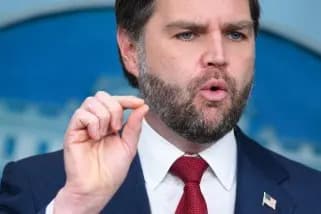The administration is preparing a rule that would strip statutory whistleblower protections from many senior federal employees and transfer enforcement to individual agencies. Documents suggest roughly 50,000 positions classified as "confidential, policy-determining, policy-making, or policy-advocating" could be affected. Critics warn the change would increase retaliation risk and deter reporting of fraud, abuse, and threats to public safety. The rule would take effect once published in the Federal Register.
New Trump Rule Would Strip Whistleblower Protections from Senior Federal Employees, Critics Say

By Courtney Rozen and Sarah N. Lynch
The administration is poised to finalize a rule that would remove longstanding statutory whistleblower safeguards for many senior career federal employees and shift enforcement responsibility to individual agencies.
According to documents reviewed by reporters, the proposed regulation would eliminate legal barriers that currently protect federal employees from retaliation when they report illegal activity, waste, or other misconduct. The rule would take effect once it is published in the Federal Register.
In a statement, the administration said affected employees would not be left entirely unprotected but that agencies themselves would take on enforcement duties rather than leaving those safeguards under the existing statute. The administration also pointed to language in an earlier April proposal that, it said, indicated certain employees would not retain statutory protections.
Who would be affected?
Documents indicate the policy would apply to employees classified as holding "confidential, policy-determining, policy-making, or policy-advocating" positions. The Office of Personnel Management has estimated the change could affect roughly 50,000 positions across the federal government.
Concerns and context
Whistleblowers play a central role in exposing fraud, abuse, and misconduct inside government agencies—issues that often remain hidden from Congress and the public without internal reporting.
"The U.S. government would be taking away whistleblower protections from the people who are likely to be best positioned to identify misconduct," said Erik Snyder, a federal employment attorney at Gilbert Employment Law.
Federal employment lawyers and union leaders warn that removing statutory protections and shifting enforcement to individual agencies would increase the risk for employees who consider coming forward, potentially deterring reports that safeguard public safety and improve government operations.
Observers also note other administration actions critics say have discouraged whistleblowing. Early in the current administration, a presidential decision removed the Biden-nominated leader of the Office of the Special Counsel—the independent office that handles whistleblower disclosures for most civilian federal employees—and a subsequent nominee, Paul Ingrassia, withdrew from consideration after reports about controversial remarks.
What’s next
If finalized, the regulation would be published in the Federal Register and become enforceable on the date specified there. The precise scope, agency-level enforcement plans, and potential legal challenges are likely to shape how broadly and quickly the change affects federal employees.
Help us improve.




























